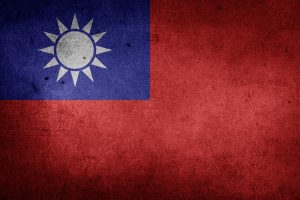A majority of Taiwanese hold favorable views of the United States while holding unfavorable views toward mainland China, a new public opinion survey by the Pew Research Center conducted in Taiwan last year found.
The survey — Pew’s first ever in Taiwan — found that 68 percent of surveyed adults reported a favorable view of the United States. Additionally, 85 percent of Taiwanese surveyed said they would support a closer economic relationship with the United States. Seventy-nine percent said they supported closer political ties with Washington.
By contrast, views of mainland China were nearly inverted, with 61 percent reporting an unfavorable view toward Beijing. Just 35 percent of surveyed Taiwanese adults reported favorable views toward mainland China.
Relations between Taipei and Beijing have worsened in the years since President Tsai Ing-wen’s January 2016 election victory. Beijing has poached several of Taiwan’s remaining diplomatic allies, isolated Taipei internationally, and attempted to more broadly economically punish the self-governing island, which it claims is a part of its own territory.
Pew’s findings on economic and political attitudes toward China among Taiwanese reveals a divergence, with a slim majority — 52 percent — reporting they would support closer economic ties with mainland China. Despite a difficult political leadership, mainland China accounts for a vast proportion of Taiwan’s exports.
Only 36 percent of Taiwanese respondents said they would favor a closer political relationship with Beijing. The figure reflects growing support for the Democratic Progressive Party, Taiwan’s ruling party, which posted a significant victory in elections earlier this year, propelling Tsai to another term in office.
Supporters of the DPP are generally more skeptical of mainland China’s political intentions for Taiwan. Pew’s survey found that partisan alignments are reasonably correlated with political feelings toward China, with Kuomintang supporters more likely to state support for a closer political relationship.
Pew’s findings also shed light on the so-called trend of “Taiwanization” — a phenomenon where, over the years, residents of Taiwan have shifted in their understanding of national identity and prefer to identify as “Taiwanese” versus ”Chinese.” When asked by Pew about how they prefer to identify, an overwhelming majority favored “Taiwanese” as an identity.
This was especially true of younger cohorts and supporters of the Democratic Progressive Party. Among those identifying as “Taiwanese” attitudes toward the mainland were also less favorable, with just 23 percent stating a favorable view.
Views of the United States did not seriously diverge along partisan lines, with supporters of the Kuomintang and the Democratic Progressive Party each reporting favorable views toward Washington.

































